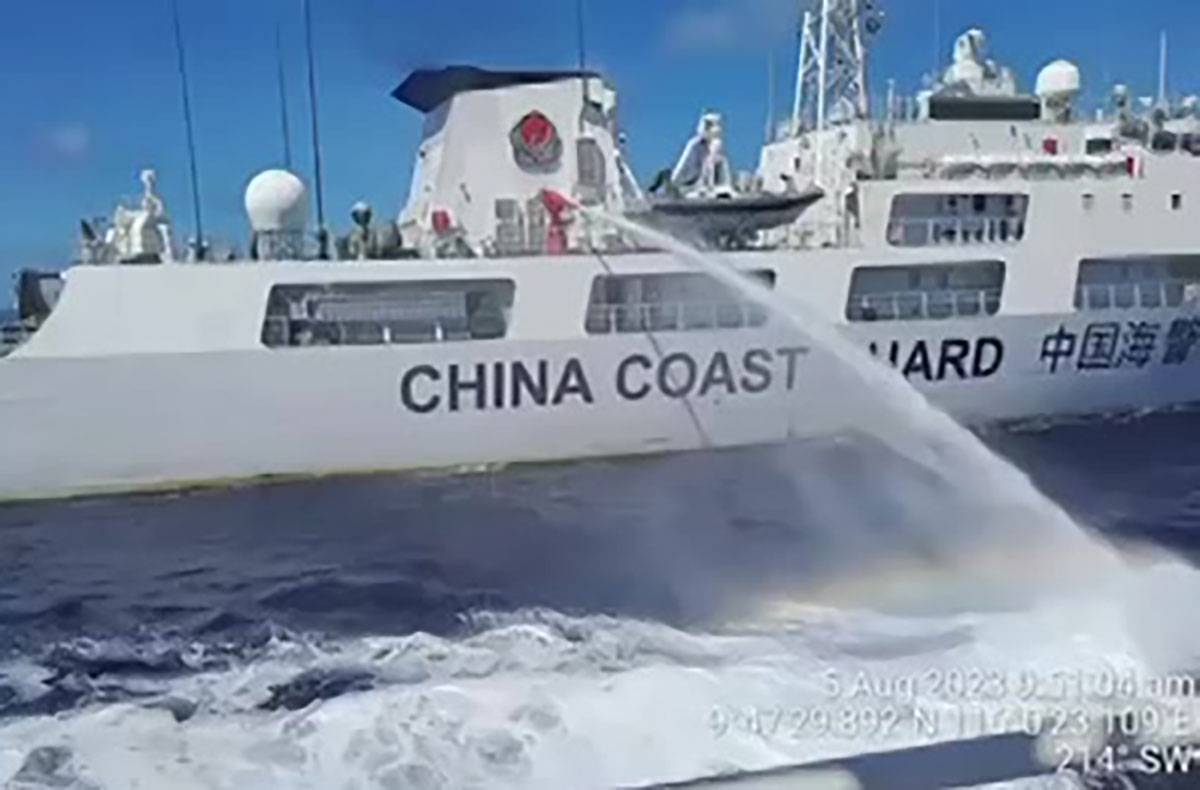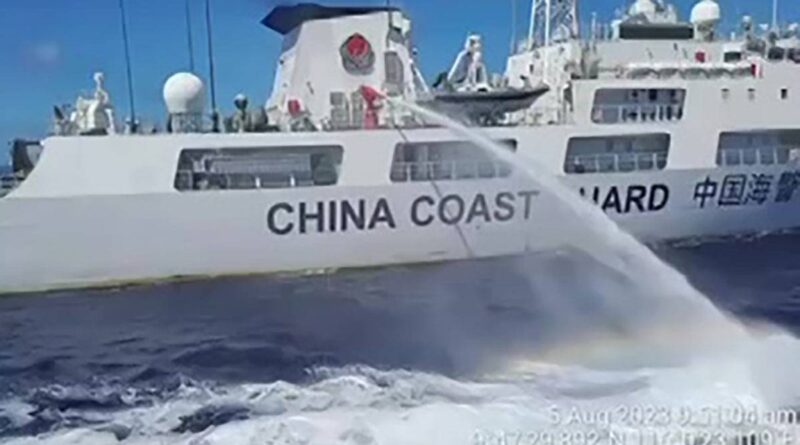PH, EU against use of force in South China Sea
THE Philippines and the European Union urged countries with conflicting claims in the South China Sea to refrain from using force that fuels uncertainty in the region.
They expressed serious concern over actions that endanger peace, security, and stability, and the rules-based international order, including recent incidents in the Philippines’ exclusive economic zone (EEZ).
The Department of Foreign Affairs (DFA) said the appeal was made during the meeting of the first subcommittee on maritime cooperation under the Philippine-European Union partnership and cooperation agreement in Brussels, Belgium, on Wednesday, September 27.

Screengrab from Video released by the Philippine Coast Guard shows one of its vessels being fired on by a Chinese water cannon in the disputed South China Sea on August 5. AFP Photo
The next meeting will take place in Manila in 2024.
The two groups “expressed serious concern over unilateral actions that endanger peace, security, and stability and the rules-based international order, including recent incidents in the Philippines’ exclusive economic zone,” the DFA said on Wednesday.
Get the latest news
delivered to your inbox
Sign up for The Manila Times newsletters
By signing up with an email address, I acknowledge that I have read and agree to the Terms of Service and Privacy Policy.
The activities also include those which “damage the seabed and marine environment, interfere with the livelihoods of fishing communities, and undermine the Philippines’ food security,” it said.
The Philippines and EU agreed that “disputes must be resolved through peaceful means in accordance with international law, in particular Unclos (United Nations Convention on the Law of the Sea), including its dispute settlement mechanism,” the DFA said.
“They emphasized their unwavering commitment to freedom of navigation and right of innocent passage and overflight in the South China Sea, consistent with Unclos,” the DFA added.
They stressed the importance of non-militarization and self-restraint in the conduct of all activities by claimants and all other states, including those mentioned in the 2002 Declaration on the Conduct of Parties in the South China Sea that could further escalate tensions.
The Philippines and the EU renewed their commitment to improve their bilateral maritime cooperation and to further their cooperation in and through multilateral and regional forums and organizations, including through the Association of Southeast Asian Nations (Asean).
They underscored the importance of respecting the sovereignty, sovereign rights and jurisdiction of states, and their maritime entitlements in accordance with international law, particularly the 1982 Unclos and its dispute settlement mechanism, while recalling the validity and finality of the Arbitration Award rendered under Unclos on July 12, 2016.
They also both committed to more training and exercises under the Critical Maritime Routes Indo-Pacific project to strengthen the Philippines’ crisis management capacities, and they discussed other areas of sectoral cooperation in the maritime area, such as sustainable development, ocean governance and connectivity.
The Philippines and China have been locked in dispute over repeated intrusions by Chinese vessels in the West Philippine Sea.
In the latest incident last week, the Philippine Coast Guard (PCG) removed a floating barrier installed by the China Coast Guard at the entrance to the Bajo de Masinloc or Scarborough Shoal.
On Wednesday, the spokesman for China’s foreign ministry described as “self-amusement” the removal of the barrier.
In a statement shared by the Chinese embassy in Manila, Wang Wenbin insisted that Scarborough, or what the Chinese call Huangyan Dao, “has always been China’s territory.”
“What the Philippines did looks like nothing more than self-amusement,” Wang said.
The PCG said the barrier was put up last September 22 to prevent Filipino fishermen from going inside the lagoon which the Philippine government insisted to be a traditional fishing ground for both Filipino and Chinese fishermen.

